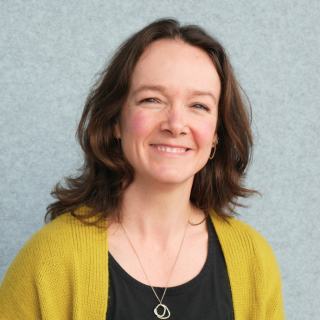M.Ost. Master of Osteopathic Medicine (Undergraduate Pre-registration Master's)
Understand what keeps a body healthy and what happens in states of disease, learning to diagnose and treat not only the site of pain, but the whole person with your expert skill as an Osteopath. This four-year integrated Master's degree is for undergraduate entry, and is designed to enable you to become a registered Osteopath with the General Osteopathic Council.


100% of students agreed staff are good at explaining things
National Student Survey 2022 - 2024

Apply now for this course
Entry requirements
Three A-levels at grades BBC or above including Biology or a related subject
Or BTEC triple grades DMM or above (with at least 6 specialist units in Biology and Science or a combination of BTEC Level 3 grades)
Or Access 30-42 with minimum 18D
Or T level M
And GCSE English Language and Maths at grade 4 or grade C or above
Applicants with other qualifications and/or experience will be considered on an individual basis
An interview is required.
UCAS points 112
UCAS code 24M4
UCAS institution code P63
Duration Four years full-time
Course Summary
Osteopathy is system of diagnosis and treatment for a wide range of medical conditions. Osteopaths focus on total body health and work with the structure and function of the body to affect the musculoskeletal framework. The principle is based on the wellbeing of an individual depending on the integrated function of all the body’s components.
During your comprehensive training, you will gain a deep understanding about the anatomy of the body including physiology, neurology and pathology. This helps you understand what keeps a body healthy and what happens in states of disease, meaning you will be qualified to diagnose and treat not only the site of pain, but the whole person.
All osteopaths in the UK are regulated by the General Osteopathic Council. Osteopathy is a statutorily regulated profession and only graduates that hold a qualification like our Osteopathic Medicine degree from an institute recognised by the General Osteopathic Council are permitted by law to practise as an Osteopath.
On completion of our four-year integrated Master's Osteopathic Medicine, and subject to a disclosure and barring check, you will qualify as a registered Osteopath. We are the only university in the South West peninsula to offer an Osteopathic Master's course which is fully accredited by the General Osteopathic Council.
During the Master's Osteopathic Medicine you will engage in over 1000 hours of clinical practice and observation that will take place in our Osteopathy Clinic. The majority of these hours will take place in years three and four when you will be treating patients under the supervision of our expert tutors who are there to help, support and educate you in the clinical environment. This is the time to put into practice all the skills, technique, knowledge you have gained over the previous two years and develop yourself as an Osteopath.
Plymouth Marjon University offers a full university campus experience, with accommodation and a sports centre on-site, high quality student support, an active Students' Union, a wide variety of jobs on campus, and the beaches and moors of Devon and Cornwall nearby. The small class sizes mean you will benefit from exceptional support from lecturers, whilst enjoying the broader student experience.
From 2025 you will be learning and working in our brand new Health and Wellbeing Hub, alongside other Allied Health Profession students and professionals to offer an integrated clinical experience to members of the public. You can find out more about our public health clinics, which are a critical part of our student learning experience, here: Marjon Health and Wellbeing | Plymouth Marjon University
Why this course at Marjon?
Accredited by the General Osteopathic Council (GOsC)
Multidisciplinary teaching team including osteopaths, physiotherapists, psychologists, physiologists, and bio-scientists
Conduct your Master's project in our state-of-the-art biomechanics, physiology or strength and conditioning labs with expert support from the teaching team
On-site accommodation offers easy access to teaching and clinics for a more focused university experience
Innovative small business management module readies you for the non-clinical side of private practice
The only university in the South West peninsula offering osteopathy
Modules for this course
Course Snapshot
“ In first year we start to learn the knowledge that will be our foundation going forwards, like our anatomy, but we also start to develop our osteopathic skill through palpation. The second year really builds on that and teaches us to look at the factors that affect our treatment. This goes from underlying conditions to the importance of good nutrition so that we have a well-rounded understanding of health and wellbeing, all before starting our clinical placement. Our third year is when we start to treat members of the public in the Marjon Osteopathy Clinic and is the time when we get to put all of the information that we've learnt up so far into practice, while still learning about becoming an osteopath. The fourth year is when we spend the most of our time in the Marjon Osteopathy Clinic, developing as practitioners that can begin to manage clinical uncertainties before we enter the wider world of osteopathic practice.”
1st Year
Anatomy
Physiology
Personal and Professional Development
Osteopathic Skills
Neurology
Biomechanics
2nd Year
Pathology and Pharmacology
General Medical Screening
Osteopathic Skills 2
Personal and Professional Development 2
Clinical Differential Diagnosis
Research Methods and Analysis
3rd Year
Clinical Practice 2
Osteopathic Evaluation
Managing Clinical Uncertainty
Clinical Practice 3
Osteopathic Skills 3
Private Practice and Business
4th Year
Master's Project
Leadership in Healthcare
Advanced Clinical Leadership
Leadership in Clinical Practice
Current students say...
Georgia Slater
“I really enjoy the practical elements of the course which are giving me invaluable experience. The support from tutors is outstanding and help is always available. The on-site clinic has provided me with a safe but professional environment to learn and progress in.”
Rob Herd
“The practical application of osteopathic techniques in the third year has brought the whole course together. My knowledge has grown significantly on this course, alongside my confidence. Seeing positive patient outcomes in the clinic makes it all worthwhile.”
This course is perfect if you’re curious about
“ There are opportunities for students to access an extensive range of specialist industry standard resources and facilities, especially in the areas of sports and rehabilitative therapy... An extensive array of physiological and rehabilitative facilities exist within the faculty…[and] will allow Osteopathy students to experience a wide range of approaches to treatments in sports and health sciences.”
Ask a student
What might you become?
On completion of M.Ost. Master of Osteopathic Medicine you'll be able to register as an Osteopath with the General Osteopathic Council. Osteopathy is a statutorily regulated profession in the United Kingdom.
Osteopathy is a rewarding patient-centred career that focuses on the whole patient. The career pathway is primarily private practice, with many Osteopaths running their own clinics, however there is an increasing provision of osteopathy within the NHS, including in GP practices and community health centres.
Your training at Plymouth Marjon University will build your confidence in any of these options, covering entrepreneurial careers, and working in a multi-disciplinary clinic, alongside other health professionals.
Accreditation
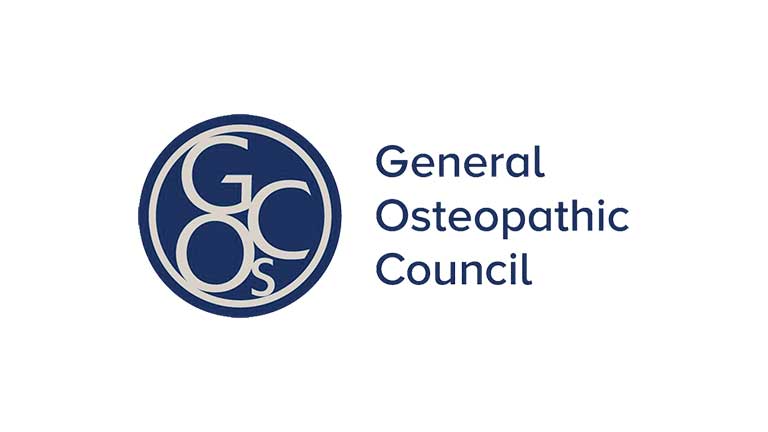
The General Osteopathic Council
GOsC regulates osteopaths in the UK. A degree is recognised by GOsC, which means that graduates are permitted by law to practise as an Osteopath.
How you’ll be taught and assessed?
How will you be taught?
Includes a mix of lectures, seminars and practical sessions. You will be taught by a multidisciplinary teaching team, who pull strength and knowledge from varied backgrounds and professional roles.
How will you be assessed?
A wide range of assessments including essays, practical exams, written exams, competency exams with real patients and presentations.

Dan is a qualified Osteopath and has worked in Osteopathic education developing high quality learning within a university setting. Dan has specialized in the application of musculo-skeletal therapy in the sporting field as well as clinical auditing, which he discusses regularly with his students.
Fees and funding
Fees UK students: £9,535 per annum
Fees for International students: £14,600 per annum
This fee covers your tuition and access to course-specific equipment and facilities, as well associated services including access to the library, study skills support, IT support, student support and wellbeing services and membership of the Student Union. There may be additional costs by course.
Additional costs:
- Disclosure and Barring Service (DBS) enhanced check - around £55.
- Clinic uniform (tunic) - around £30.
- Clinic kit will be required which you can use in private practice when you graduate. The minimum recommended for your clinical kit is a sphygmomanometer, stethoscope and patella hammer, at a cost of approximately £150.
Funding available for this course
Our Student Funding Advisors offer confidential and impartial advice about your funding options.
Learn moreLecturers
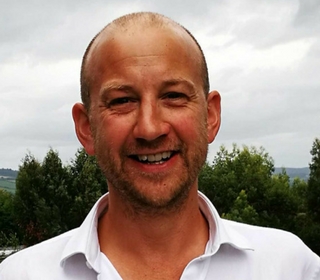
John is a qualified Osteopath and is a qualified Acupuncturist, Sonographer, Nutritionist, strength and conditioning coach and advanced rehabilitation specialist. Out of his own experience of nerve damage, John developed a complete health care system that takes into account the patient's pain and needs spanning nutrition, physical rehabilitation, acute and chronic pain management, fitness and strength and reconditioning.
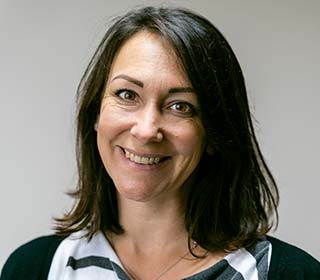
Stephanie is a qualified Osteopath who supports a varied patient base; her areas of expertise include technique, physiology, pharmacology of common drugs, a best practice approach to treating babies and woman’s health.
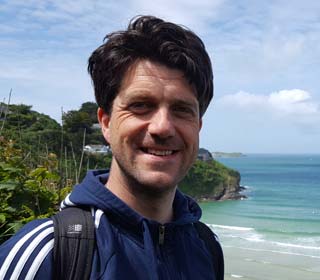
Kieron is a qualified Osteopath who has worked in established clinics across the country as well as running his own successful clinic; he has special interests in biomechanics and working with patients with chronic pain.
Frequently asked questions
Q1 On how many days a week do I attend lectures?
Q2 Where will my placement be?
Q3 What equipment will I use?
Q4 Will all of my lectures be on campus?
Q5 How much might I earn?
Apply now for this course
Find out more about studying M.Ost. Master of Osteopathic Medicine at Marjon

Discover Uni collects data about university courses in the UK. All universities publish Discover Uni data on their online course pages enabling you to compare similar courses at different universities.

